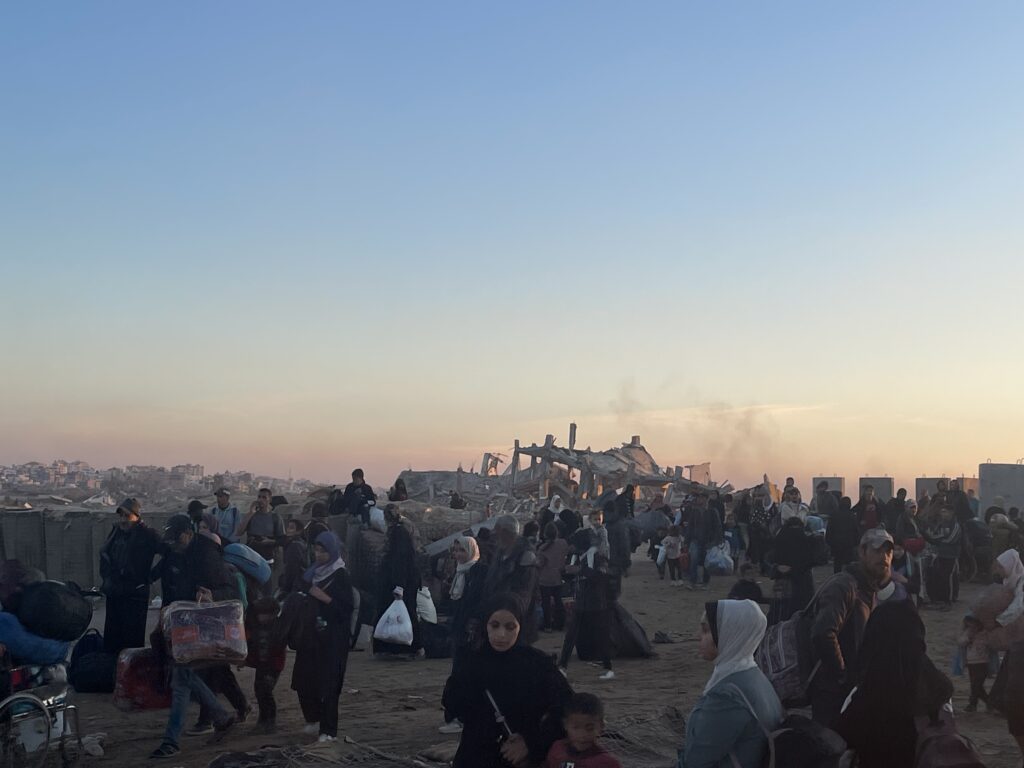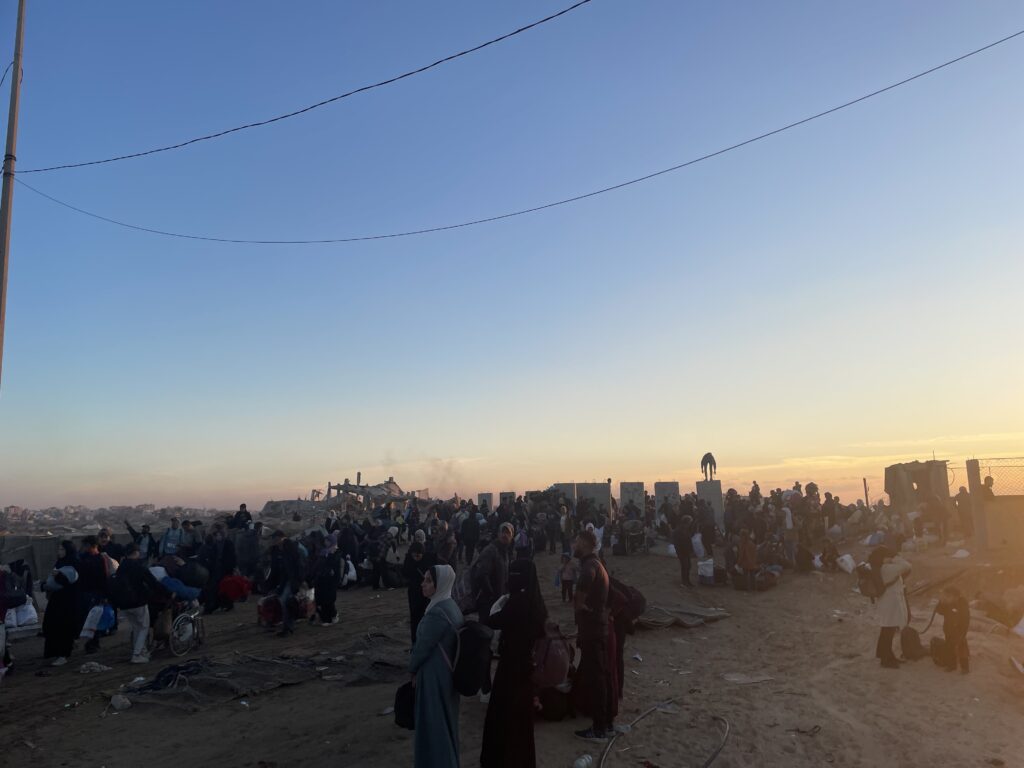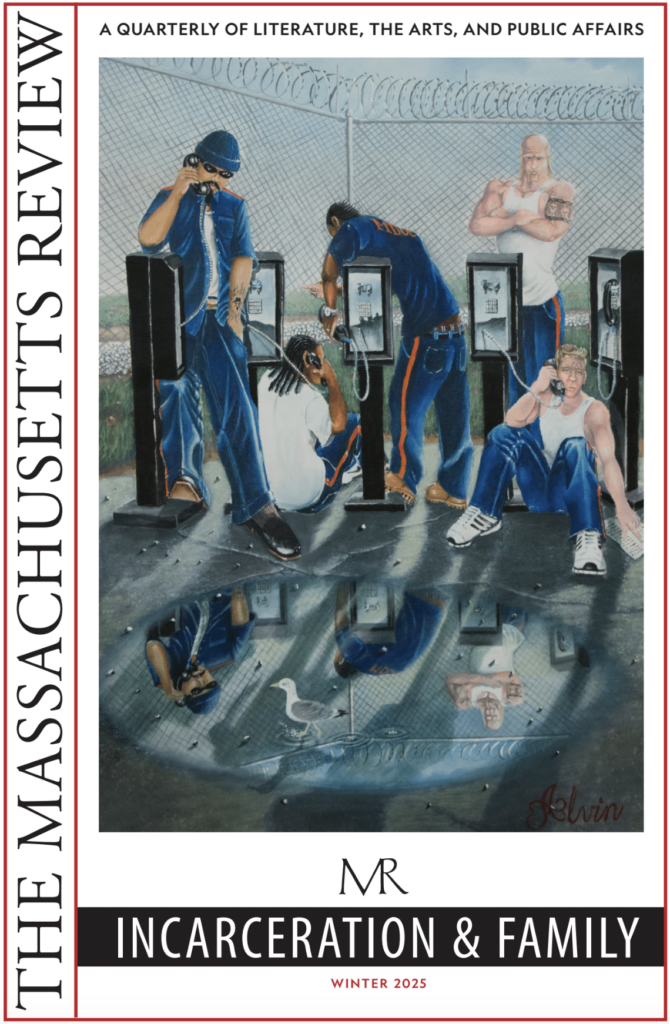“In Gaza, we are born to die”: a day in the life of an aid seeker

July 26th was a day like many others in Gaza. I woke up at 8:00 a.m. to fetch four gallons of potable water from the truck that would come every day to the school where my family and I had been displaced. After completing that daily mission, I was already exhausted. I wanted to eat, but couldn’t find any food. Since the beginning of July, food prices had skyrocketed so high that almost no one in the Strip could afford to buy even the most basic supplies. I was trying to distract myself from the feeling of hunger by playing on my phone and drinking water mixed with salt, so as not to feel dizzy. While I was drinking, I saw my friends, Abdulrahman, Fouad, and Ismail, pass me by. They were wearing their shoes, so I asked them where they were going. Ismail told me they were going to the Rafah distribution point.
Since June 2025, the Gaza Humanitarian Foundation had been claiming to distribute aid to the people of Gaza. But it turned out that the only thing they were really distributing was death. Hundreds of innocent civilians were killed there by the Israeli occupation. I still wore my shoes and got in the car with them. A ride to Rafah would have cost $1 before the genocide, but now each one of us had to pay the drive $8. Just like food, transportation fees had skyrocketed as well. The three of us stood under the burning sun in the back of a truck, and we reached Southern Khanyonis around 10:00 a.m.
The driver dropped us off there, because reaching Rafah was considered too dangerous. The four of us had to walk for two kilometres to reach Rafah. After a while, I saw hundreds of thousands of people waiting to get aid, as far as three kilometres away from the distribution centre. To increase our chances of securing aid, Ismail, Abdulrahman, Foaud, and I followed some people who were from Rafah, trying to get near to the GHF distribution point. When we got a bit closer to the site, it was impossibly crowded. People were coming from everywhere to get to the distribution center. The road that citizens are allowed to walk on was several meters wide. On both sides of this road, there were sand barriers more than nine meters high, with Israeli tanks behind them.
Then, the Israeli army began firing shots at us for no reason. Bullets were flying everywhere. Ismail pointed to an Israeli tank with a dozen soldiers on it who arrested the people who were right in front of us, and said we had to go back. That was the first time in my life I had seen an Israeli tank. It wasn’t just a war machine, but a monster crawling over the shattered earth of Gaza. We ran back with hundreds of others, trying to find cover and escape the shooting, but so many more people remained there in the hope that the site would open. And while they waited, the tank crushed the remains of a home nearby with its massive steel body, to prevent anyone from using it as shelter. Even from a distance, I could feel the tank’s cold cruelty; an unfeeling machine enforcing human brutality.
About an hour later, the Israeli occupation soldiers released the Palestinians they had arrested; those who had gotten close to the site. After being kidnapped, those starved Palestinians had been tortured and were now being released without so much as a piece of cloth to cover their bodies. The Israeli army then brought in a bulldozer, erasing what little was left standing in that area, turning it into a complete desert. Like hundreds of thousands of hungry, innocent people, I remained there until 5:00 p.m., but the distribution point never opened. Instead, the Israeli army shot, killed, and wounded many more civilians, and forced the rest to leave empty-handed.

But Foaud and Abdulrahman did not want to return empty-handed. Their families and young siblings were waiting for them to bring food to eat. Abdulrahman was thinking of his brother Malek, who would starve for another day. Ismail added that he couldn’t spend another $8 to return empty-handed, and needed to save the transportation fees to feed his family. The rest of us agreed with him, and we decided to walk to Deir Al-Ballah, which was more than fifteen kilometres away. When we reached Khanyonis, the four of us were thirsty. We found a man selling potable water, but we had nothing to carry it with. We asked him if he could just let us drink some and leave. The man knew that we were in Rafah seeking aid, so he brought a bottle, filled it with water, and gave it to us. Half an hour later, we saw a water truck that was being refilled and was about to leave. Ismail jumped in the back. I asked him what he was doing, and Ismail said the truck might be heading to Deir Al-Ballah, and told us to get in. We jumped next to him in the back, and the truck started moving. We soon realized that the driver was not heading to Deir Al-Ballah, so we jumped off the car on Al-Nus Street in Khanyonis. From there we kept walking.
I had wanted to bring food for my family so they could have a moment of comfort in the midst of the famine. Instead, when it got dark, I became anxious that my father would now be searching for me. Abdulrahman stopped in the street and said that his father would also be worried about him and that he too was dead exhausted. I told Ismail that it would be dangerous to continue walking at night, when the Israeli occupation targets would only increase. We tried to hitch a ride, but we couldn’t find any empty cars or trucks; not even a cart. We walked until we reached the Al-Qurara area around 8:00 p.m. We sat on the ground, completely drained, hoping to find a way to return. A few minutes later, we saw an iron-sided truck crowded with people. We begged the driver to let us hang on to the sides of the truck to reach Deir Al-Ballah. He said that he could not take any responsibility if someone fell, but we all hung on the iron because it was our last chance to reach our families alive. There was a man sitting on the truck, who was also in Rafah seeking aid. Reflecting on the life we were living, and still are, he said: “In Gaza, we are born to die.”
My friends and I reached our tents around 9:00 p.m., but many starved Palestinians did not. My father told me to never even think of going to any of the Gaza Humanitarian Foundation sites ever again. Abdulrahman’s father said to him that he would rather see him dead next to him than let him go to his death in Rafah. “At least, I could bury him,” he added. My mother cooked one kilogram of lentils that my father bought for $25. We didn’t have any bread, so all I ate that day was a small plate of lentils. I used to gather with my neighbours at the school to play cards, but I could not see them. I couldn’t feel my legs from walking so I just lay down on my mattress and fell asleep. The next morning, Foaud went again to bring food for his young siblings, and never returned. Only death was distributed in the GHF sites.
Khaled Al-Qershali is an English graduate working as a journalist in Gaza.



